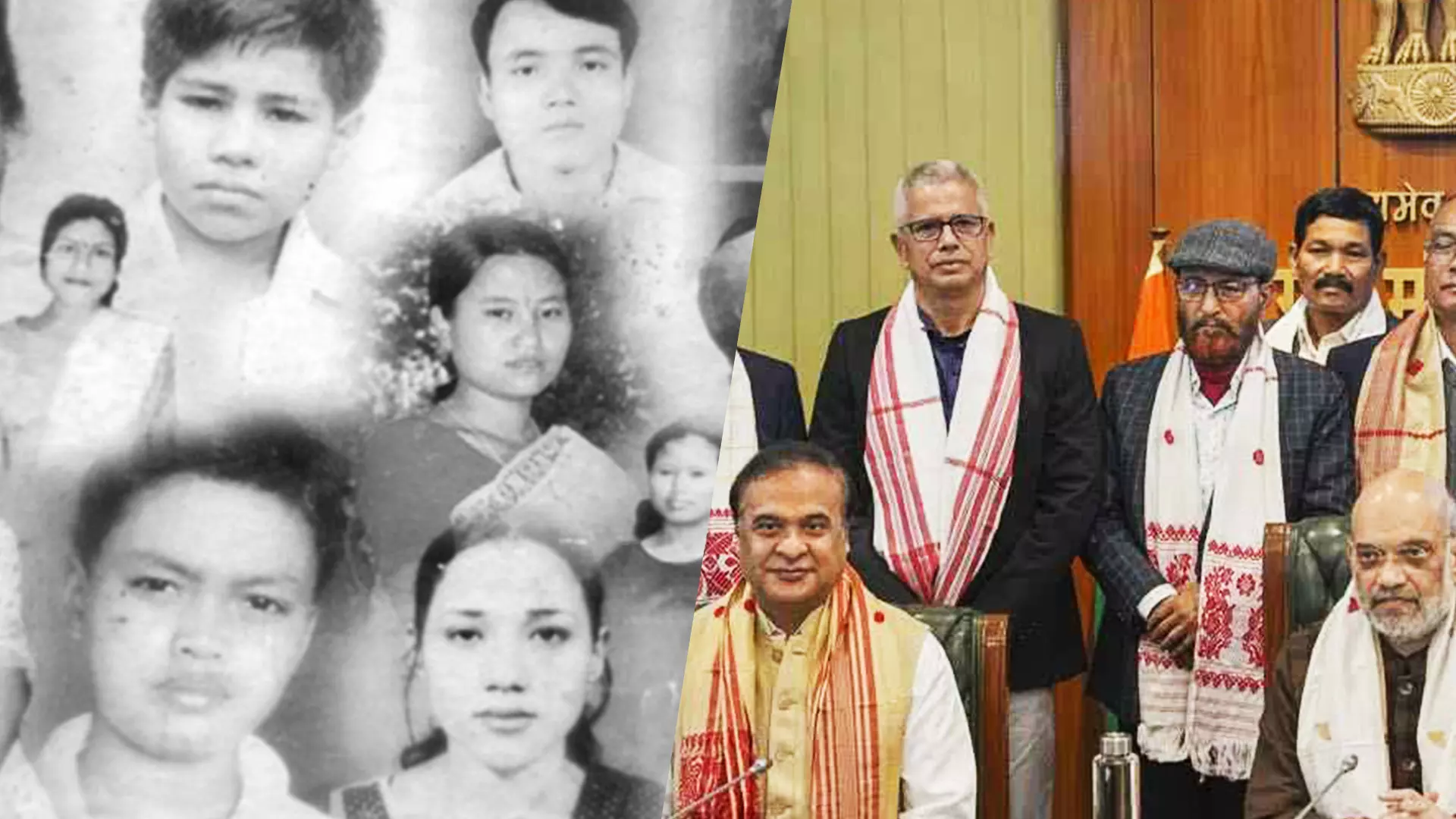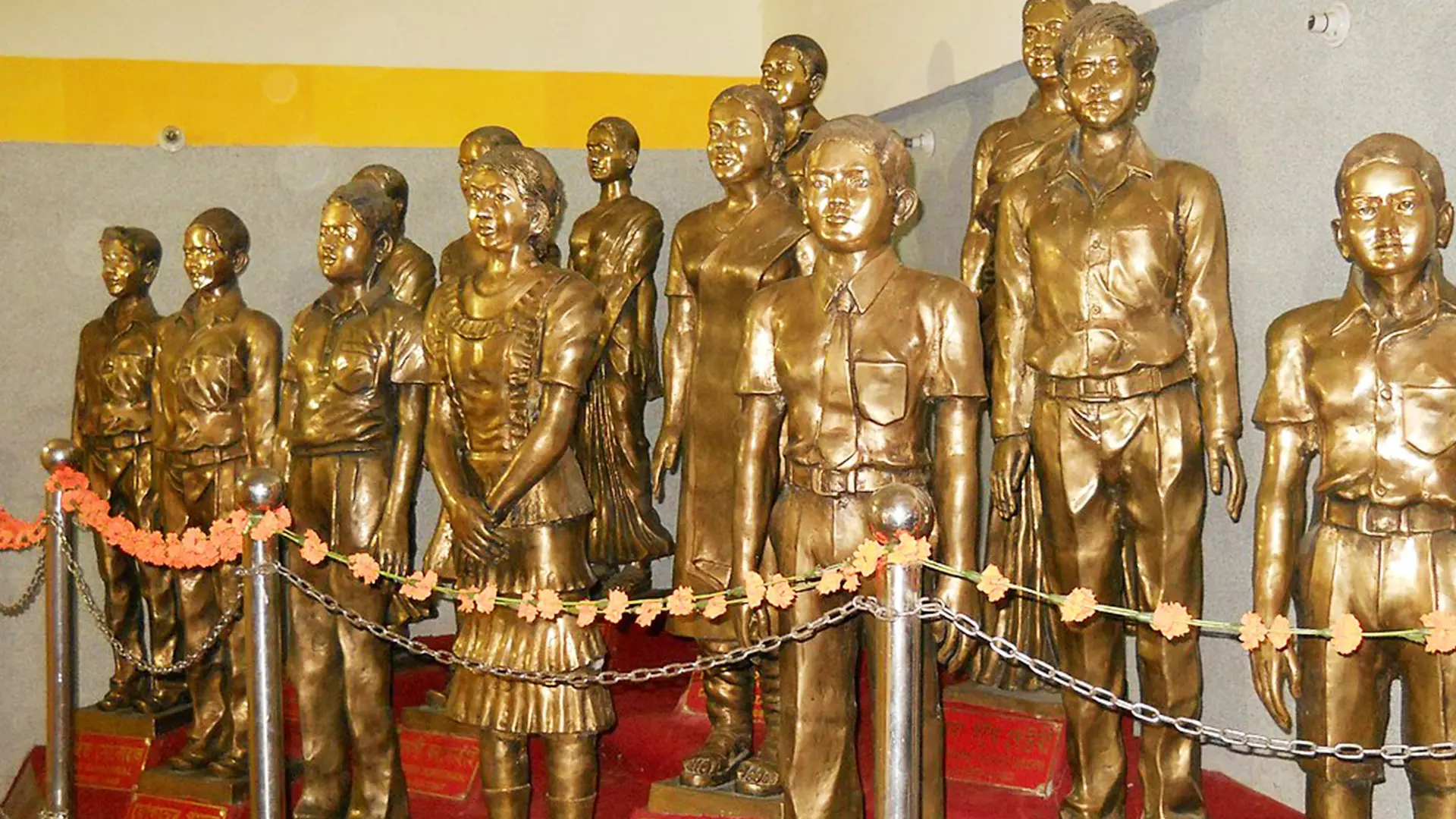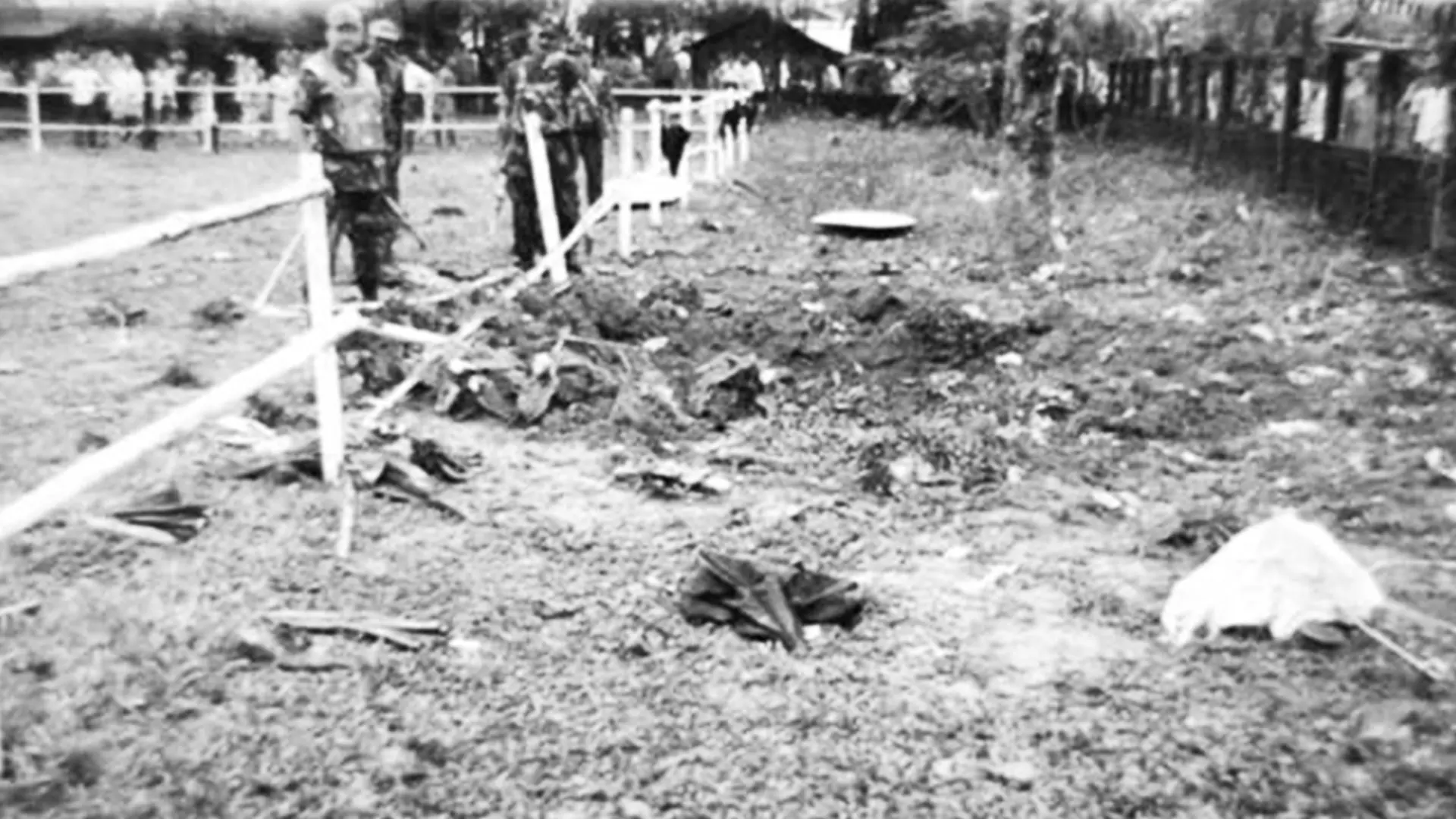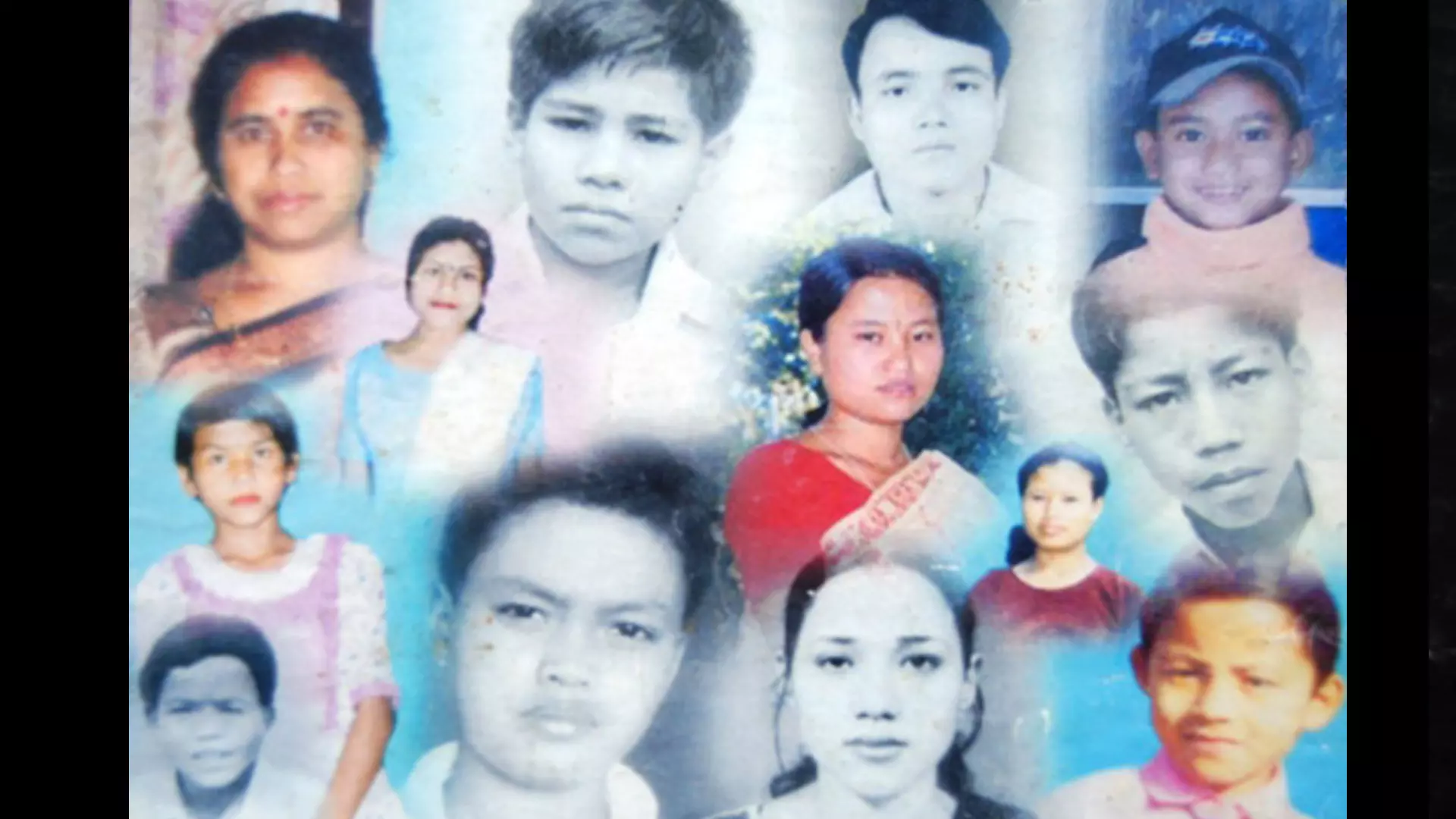
- Home
- India
- World
- Premium
- THE FEDERAL SPECIAL
- Analysis
- States
- Perspective
- Videos
- Sports
- Education
- Entertainment
- Elections
- Features
- Health
- Business
- Series
- In memoriam: Sheikh Mujibur Rahman
- Bishnoi's Men
- NEET TANGLE
- Economy Series
- Earth Day
- Kashmir’s Frozen Turbulence
- India@75
- The legend of Ramjanmabhoomi
- Liberalisation@30
- How to tame a dragon
- Celebrating biodiversity
- Farm Matters
- 50 days of solitude
- Bringing Migrants Home
- Budget 2020
- Jharkhand Votes
- The Federal Investigates
- The Federal Impact
- Vanishing Sand
- Gandhi @ 150
- Andhra Today
- Field report
- Operation Gulmarg
- Pandemic @1 Mn in India
- The Federal Year-End
- The Zero Year
- Science
- Brand studio
- Newsletter
- Elections 2024
- Events
- Home
- IndiaIndia
- World
- Analysis
- StatesStates
- PerspectivePerspective
- VideosVideos
- Sports
- Education
- Entertainment
- ElectionsElections
- Features
- Health
- BusinessBusiness
- Premium
- Loading...
Premium - Events
Dhemaji to kidnappings: ULFA disbanded but why its victims continue to live amid fear, sense of injustice


Thirty-six-year-old Nityananda Saikia’s eyes are blank. He looks around listlessly and his face conveys hopelessness. Unsure of what to do, Nityananda looks at the photos of his two deceased sisters — Aruna (15) and Rupa (13) — every now and then. The news of the disbanding of United Liberation Front of Asom (ULFA) has reminded Nityanand that the people responsible for the tragic death...
Thirty-six-year-old Nityananda Saikia’s eyes are blank. He looks around listlessly and his face conveys hopelessness. Unsure of what to do, Nityananda looks at the photos of his two deceased sisters — Aruna (15) and Rupa (13) — every now and then. The news of the disbanding of United Liberation Front of Asom (ULFA) has reminded Nityanand that the people responsible for the tragic death of his sisters have still not been punished.
On August 15, 2004, as the country was celebrating Independence Day, schoolchildren and their mothers, gathered at Dhemaji College ground in Assam. At around 9.30 am a bomb placed near the college gate, triggered by a remote-controlled device left 18 people, including 13 schoolchildren dead. The explosion, which was owned by ULFA, happened when the students and teachers of various schools were passing through the gate. Aruna and Rupa were among the 18 blast victims.
Today, Nityananda a lawyer by profession is sad that the government has failed to hold ULFA members to account for the death of his sisters.

Statues dedicated to victims of 2004 Dhemaji blast.
“I feel heartbroken and helpless after knowing that ULFA has been disbanded in a deal between the outfit and the government. This deal does not include justice for those who suffered during the years of violence. This deal does not talk about punishing the killers of my sisters. They are saying this will help establish permanent peace. How can there be peace without justice?” Nityananda asks.
“The members of the organisation which has killed so many innocent people including children are now free from the responsibility of the crimes they committed,” he said.
Nityananda’s pain is shared by Rajkumar Taid who lost his only child Siddhartha Taid in the powerful bomb explosion. Siddhartha was only 11 years old at the time of his death.
“My pain has doubled on hearing the news. The organisation which killed so many innocent people during the Dhemaji bomb blast has now been disbanded without being held to account for the bloodshed,” Rajkumar said with tears welling up in his eyes.
Six people were accused in the blast case. Five years after the incident, ULFA(I) commander-in-chief Paresh Baruah sought public apology for the incident.
In 2019, a Dhemaji local court sentenced four of the accused persons — Dipanjali Buragohain, Muhi Handique, Jatin Dowari and Leela Gogoi — to life imprisonment. The other two — Prashanta Bhuyan and Hemen Gogoi — were given four-year imprinsonment.
But in August 2023, all six were acquitted by the Gauhati High Court. Pronouncing the verdict, the HC observed that all accused were convicted based on “suspicion and speculation”, rather than concrete evidence.
Disgruntlement
The verdict left many disappointed.
“This was a gross injustice to the family of the victims. I still remember the day when the bomb blast happened on Dhemaji College playground. After the bomb blast, ULFA claimed responsibility and the families should have got justice. But now they have lost all hope because the organisation was disbanded and the High Court had also acquitted all the accused who were involved in the bomb blast. The family of the victims have been denied justice,” said senior journalist Rajiv Dutta.
All Assam Students’ Union, Dhemaji, general secretary Jayanta Borgohain asks a pertinent question: “If no one was involved in the Dhemaji bomb blast, then how did it take place? Who was at fault? We have been demanding proper investigation and justice in the case.”
A Gauhati High Court advocate, however, says the disbanding of ULFA and justice in Dhemaji case have no correlation.
“Even after an organisation is disbanded, criminal cases might still be pursued against the individual who has committed the crime, irrespective of the fact that such crimes had been committed under the banner/aegis of a disbanded organisation. Criminal cases are filed against individuals in their personal capacities besides being filed against the organisation sponsoring such criminal activities,” said the lawyer wanting to remain anonymous.

The blast site where 18 people, including 13 children, died in 2004.
“In the case of ULFA, individuals who had committed crimes under its patronage, are still liable to be prosecuted in their individual capacities, provided the Government is sincere enough to pursue such cases and provided the victim families have actionable evidence against such individuals. The victim families may invoke the writ jurisdiction asked the Hon’ble High Court to reopen any case where the organisation members have been acquitted in spite of concrete and actionable evidences against them,” he said.
On December 29, 2023, the Centre, the Assam government and key faction of Assam's oldest insurgent group signed a tripartite peace agreement disbanding ULFA. The pro-talks faction of the United Liberation Front of Asom (ULFA,), led by Arabinda Rajkhowa, signed the accord, agreeing to shun violence, disband the organisation, and join the democratic process.
Union home minister Amit Shah described the pact as a watershed moment that will end decades of violence in the restive northeastern state and usher in a new era of peace and prosperity.
The hardline Paresh Baruah faction of ULFA was not part of the agreement. The pro-talks faction has 726 members of the extremist faction.
In February 2011, ULFA split into two groups. The one led by Rajkhowa decided to give up arms and sit down for talks with the Union government without preconditions. Baruah decided against any negotiations, and rebranded his faction as ULFA-Independent. At the time of the Dhemaji incident, however, ULFA was a united front.
Bloodied history
The Dhemaji victims aren’t the only group demanding justice. The list of ULFA atrocities runs long and has been bloody.
Rough estimates say over 10,000 people have been killed, including about 700, by Ulfa. About 4,500 innocent civilians and ULFA cadres are part of the long list of victims. More than 2,000 people were also abducted during the period.
Founded on April 7, 1979, in Sivasagar, Assam, Ulfa emerged with the objective of establishing an independent sovereign state for the indigenous Assamese people. The group began its armed operations in the late 1980s, led by figures such as Paresh Baruah, Arabinda Rajkhowa, and Anup Chetia.
When Ulfa started operations, it was thought of as a group helping the needy, but ULFA's tactics soon escalated into an armed struggle against the Indian government.
The outfit was banned after the killing of Surendra Paul in Tinsukia district.
Surendra was a prominent tea planter and brother of Lord Swraj Paul so his killing shook the state’s tea industry and the country. With Swraj Paul being a UK-based businessman, the incident drew global attention and the Centre was compelled to ban ULFA, impose President’s Rule in Assam by dismissing the then Prafulla Kumar Mahanta-led Asom Gana Parishad government and launching ‘Operation Bajrang’ against the outfit.
Another shocking ULFA atrocity came to light on July 1, 1991, when ULFA abducted 14 people, including an engineer, from the erstwhile USSR on a single day across Assam.

Victims of the 2004 blast.
The body of the Russian engineer, Sergei Gretchenko, was never found. Six years later, social activist Sanjay Ghosh was abducted from Majuli and killed. His body, too, has not been recovered.
Among its political killings, the biggest one was the assassination of former state PWD and forest minister Nagen Sharma in Nalbari, in 2000.
In 1997, then chief minister Prafulla Kumar Mahanta also escaped a bid on his life.
Though the Centre may today claim a big step towards peace in Assam by getting ULFA to disband, the anger, pain and hurt caused by Ulfa’s violence continues to simmer.
